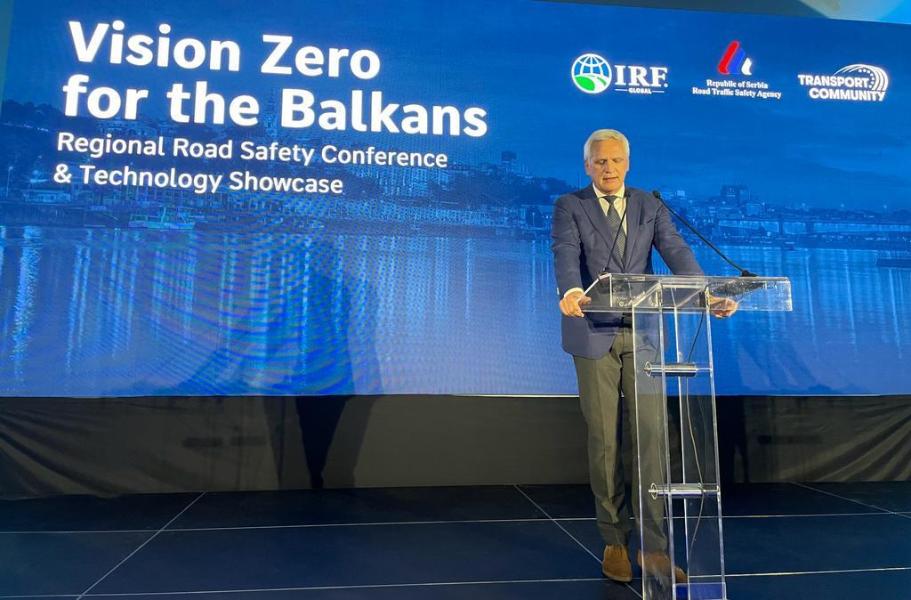
As one of the leading financiers of transportation projects in the Western Balkans, EIB Global contributed to two notable regional conferences on road safety and connectivity that opened on 15 May.
Vision Zero for the Balkans
The regional Road Safety Conference “Vision Zero for the Balkans”– organized by the International Road Federation and the Serbian Road Traffic Safety Agency as part of the 7th UN Global Road Safety Week – kicked off in Belgrade on Monday 15 May. EIB Vice-President Kris Peeters emphasised the importance of enhanced partnerships and policy measures to prevent further loss of life as well as economic output. The Balkans region currently experiences a much higher proportion of road-related deaths and serious injuries per million inhabitants than the EU27.
“In 2022, road fatalities claimed almost 1 300 lives in the Western Balkans. Together with our partners, we need to take decisive action to prevent this immense loss of life and economic output. Through the EIB’s Transport Lending Policy, we are committed to prioritising projects and activities that help accelerate the safe and sustainable transport systems of tomorrow.”, said Vice-President Peeters.
“In the Western Balkans, we are supporting key transport projects under the Economic and Investment Plan, with EIB investments in the region reaching close to €6 billion to date. In addition, we are providing advisory support for the preparation and implementation of high-quality transport projects that promote safety, accessibility and sustainability”, he concluded.
2023 Connectivity Summit
On the same day, a regional Connectivity Summit organised by the Transport Community and the Central European Free Trade Agreement (CEFTA) took place in Budva, Montenegro. The aim of the summit was to bring the attention of the wider community of professionals and political stakeholders to issues related to sustainable and efficient transport and logistics, as prerequisites for attracting investments and enhanced trade within the Western Balkans region, as well as between the region and the European Union.
“New connectivity should be intertwined with smart, digital technologies and more ambitious policies to reduce transport’s reliance on fossil fuels, increase safety, and manage existing infrastructure more sustainably and adapt it to climate change. Digitalisation can make it possible not only to improve reliability and reduce travel times and costs, but also to drive behavioural changes and promote the more efficient management of logistics and use of transport assets in general,” said EIB Global Head of Unit Kadir Bahcecik at the panel discussion on the sustainable transport connectivity.

©EIB
Download original

©EIB
Download original

©EIB
Download original